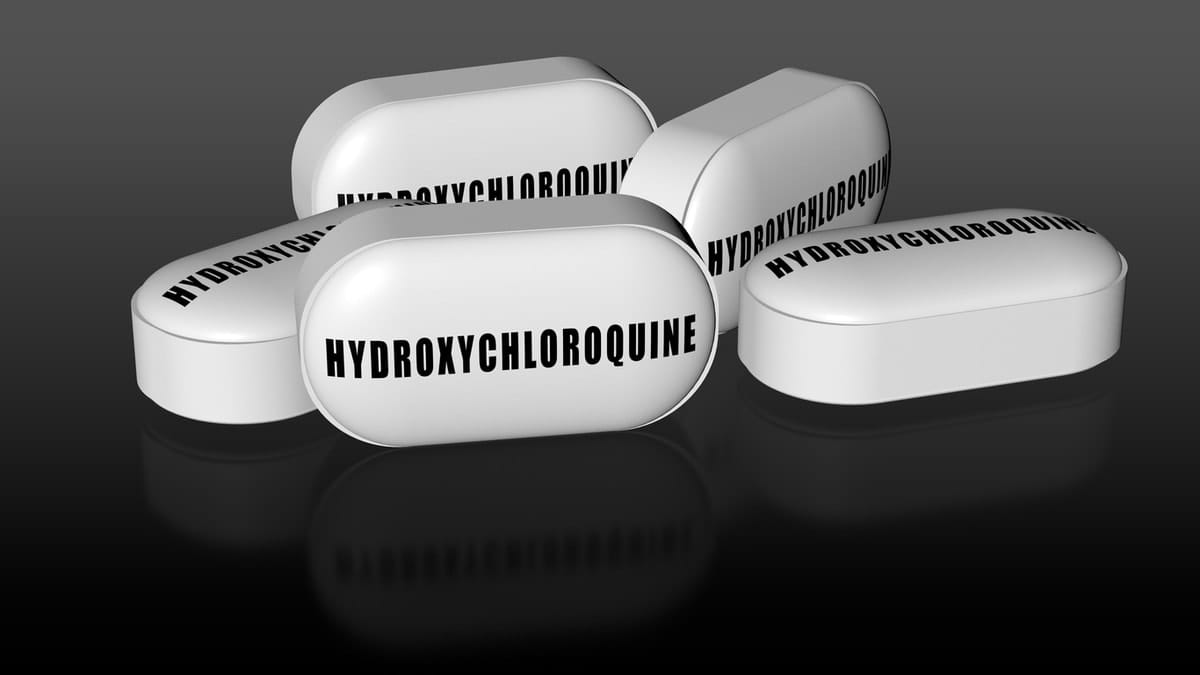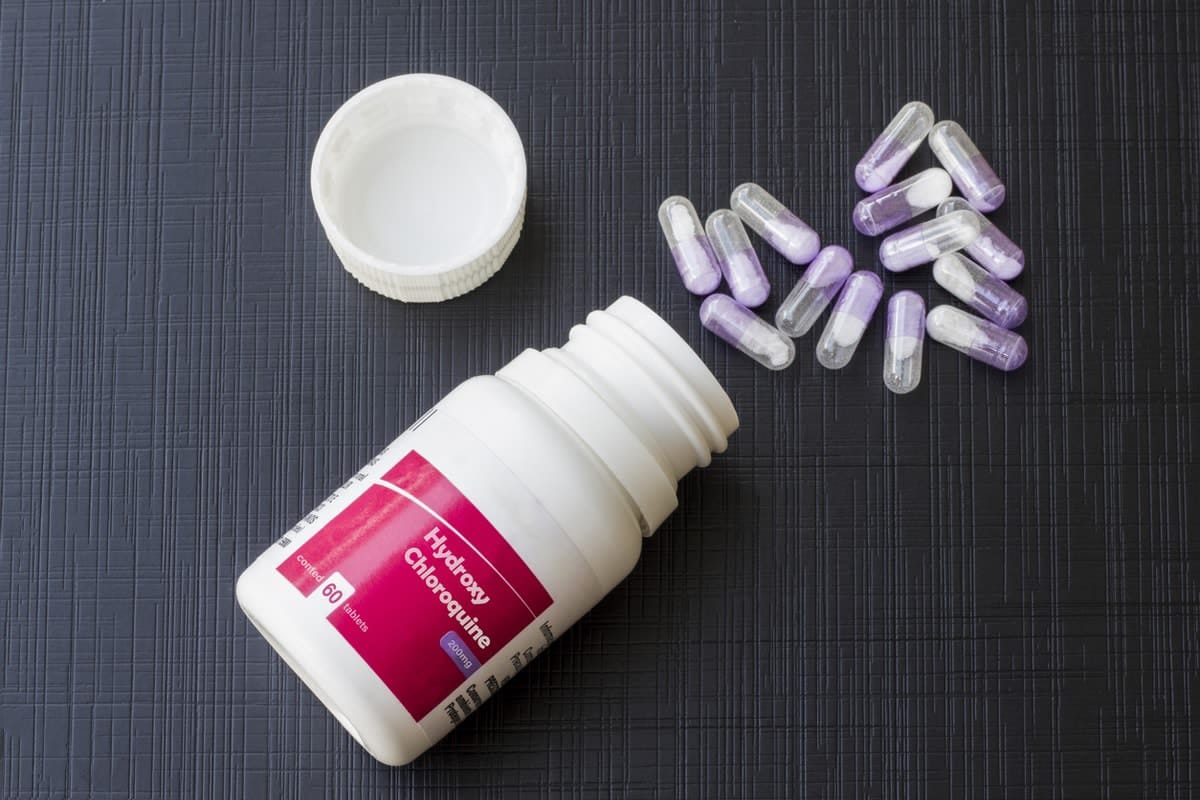
Early in April – deep within the unease of the pandemic that has stopped the world, death rates climbing in his own country towards 40,000 – US President Donald Trump declared a malaria, arthritis and lupus medication to be a potential saviour, urging Americans worried about illness to try it.
“Take it. What do you have to lose?” Trump said, according to The Guardian, inferring he might do so himself after asking “my doctors”, because it might be a “game-changer”. He said America didn’t have time to wait until the medication, called hydroxychloroquine, and sold as Plaquenil, was properly tested for COVID-19.

A small Chinese study has suggested viral entry into host cells, through use of the medication, was slowed, and replication of the virus inhibited. An equally small French study showed decreasing viral levels in patients after treatment.
President Trump’s top doctor on infectious diseases, and a key member of the White House taskforce, Dr Anthony Fauci, went public straight away to hose down any raised hopes. He said there was nothing to suggest the medicine had any benefit against coronavirus.
However, as Monash Faculty of Pharmacy and Pharmaceutical Sciences experts Professor Simon Bell and Dr Darren Creek have written in an Australian medical journal, the trumpeting of the medication’s potential has led to a rush on it in Australia and globally, effectively taking it off the shelves of community pharmacies for those for whom it’s normally prescribed, raising medical as well as ethical issues.
The piece, published by the Royal Australian College of General Practitioners, puts the hydroxychloroquine issue in the context of so-called ‘off-label’ prescribing.
’Off-label is certainly not limited to times of pandemic or epidemic,” says Professor Bell. “It commonly occurs, and it simply refers to use of a medication outside of an approved indication. It doesn’t always mean it’s bad prescribing; it just means the drug is not approved for some people to use.”
“There is currently no robust evidence to support prescribing hydroxychloroquine as a treatment or prophylaxis for COVID-19.”
The article outlines how Pharmaceutical Society of Australia President Dr Chris Freeman wrote an open letter to prescribers calling for an end to prescribing of hydroxychloroquine unless there was a genuine need. Some doctors have been prescribing the medication for themselves or their families.
Dr Freeman went as far as to suggest that pharmacists should refuse to dispense hydroxychloroquine unless they’re satisfied it’s been prescribed for an approved indication – rheumatoid arthritis, mild systemic and discoid lupus erythematosus, or the suppression and treatment of malaria.
“The Therapeutic Goods Administration (TGA) has not approved any medications for the prophylaxis (prevention) or treatment of COVID-19, and so all medication prescribing for this purpose is considered off-label,” the authors write. “Off-label prescribing may also occur in the absence of alternatives when there are grounds to suspect a medication is effective based on its known mechanism of action.”
The relationship between malaria and hydroxychloroquine
The published piece traced the history of malaria and the drug hydroxychloroquine, raising a question of why a medication so old could now be considered a “game-changer” for an altogether new illness.
In the Middle Ages, the deadly, feverish illness we know now as malaria was endemic throughout most of the world, they write, with malaria known as “ague”. The term “mal’aria” was unknown in English until the 18th century. But there was an alleged cure, derived from the South American cinchona tree (containing quinine), and it had already been in use for 100 years.
Quinine and its chemical successors in malaria treatment – chloroquine and hydroxychloroquine – have largely been superseded by more effective, less toxic medications. Hydroxychloroquine is reserved for still significant but less common conditions.
The authors spell out that the mechanism of action for antiviral activity with the medication isn’t clear, and with weak evidence of clinical benefits.

“Hydroxychloroquine interferes with the acidification of host cell lysosomes, and it is proposed that this could inhibit viral entry into host cells,” they write. “In vitro studies do show that chloroquine and hydroxychloroquine can inhibit SARS-CoV-2 viral replication, but at around 100-fold weaker potency than their activity against malaria parasites. Chloroquine and hydroxychloroquine do accumulate to high concentrations within tissues, and modelling suggests that effective antiviral concentrations could theoretically be achieved in lung tissue with acceptable dosing protocols.
“However, chloroquine has proven ineffective in randomised controlled trials for other viruses. There are currently no convincing data from human studies to support the efficacy of hydroxychloroquine for prophylaxis or treatment of COVID-19.”
Harms have been long-realised
The potential harm from taking it, meanwhile, has been well-established over 70 years.
“Cardiac adverse events may be of particular relevance given that COVID-19 is more severe in older people who are also likely to have cardiovascular comorbidity,” the authors write. “A chart review of 355 people who died from COVID-19 in Italy reported 30 per cent had ischaemic heart disease, 25 per cent had atrial fibrillation, and 10 percent had prior stroke.
“There is currently no robust evidence to support prescribing hydroxychloroquine as a treatment or prophylaxis for COVID-19,” the authors conclude. “Doing so risks unnecessarily exposing people to adverse events, and depriving people with approved indications from accessing their medication.”
Meanwhile, the AustralaSian COVID-19 Trial (ASCOT) trial is set to be launched at more than 80 hospitals across Australia and New Zealand, and will investigate whether hydroxychloroquine and other medications are effective at preventing deterioration of patents with COVID-19.





